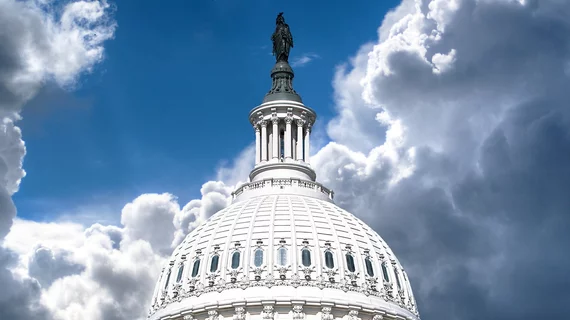Surprise billing ban rollout must match congressional intent, ACR and bipartisan lawmakers urge feds
The American College of Radiology and bipartisan members of Congress are urging Health and Human Services to tread carefully while implementing a ban on surprise medical bills.
Lawmakers authorized the No Surprises Act in December as part of a year-end spending package. Now 97 House representatives from both parties want HHS and other agencies to reflect their intent when addressing an issue that has rankled reps from both sides of the aisle.
In a recent letter, lawmakers advised new Secretary Xavier Becerra to ensure a “balanced process” when settling payment disputes between radiologists and health insurers.
“In order to ensure a smooth rollout of these landmark patient protections, it is important that each step of the process provides sufficient time for public comments and evaluation through proposed notice and comment rulemaking,” representatives wrote to the secretaries of HHS and the departments of labor and treasury earlier this month. “Working together, we are confident that successful implementation of this patient-centered law will resolve billing disputes, take patients out of the middle, and empower patients to make more informed healthcare decisions.”
The American College of Radiology highlighted the letter in a Thursday update to its members. ACR has previously expressed concerns about the No Surprises Act, including gray areas in the bill that insurers might use as leverage to disrupt good-faith price negotiations.
“The American College of Radiology applauds the bipartisan signatories and will continue to engage Congress and the Biden administration to ensure intended implementation,” ACR said June 24.
House members led by Reps. Thomas Suozzi, D-N.Y., and Brad Wenstrup, R-Ohio, emphasized that independent arbitrators must consider all factors when settling payment disputes. The process set up by the bill is meant to prevent “artificially low payment rates that would incentivize insurance companies to keep providers out of their networks,” reps also emphasized.
“To match Congressional intent, your implementation of the law should ensure an [independent dispute resolution] process that captures the unique circumstances of each billing dispute and does not cause any single piece of information to be the default one considered,” the letter writers said. “Additionally, in passing the No Surprises Act, Congress gave patients important tools to navigate their healthcare. It is critical that our intent is recognized as you implement the transparency and consumer protection provisions of the law.”
Moody's Investors Service predicted back in January that the No Surprises Act could potentially constrain cash flows for radiologists and other providers.

